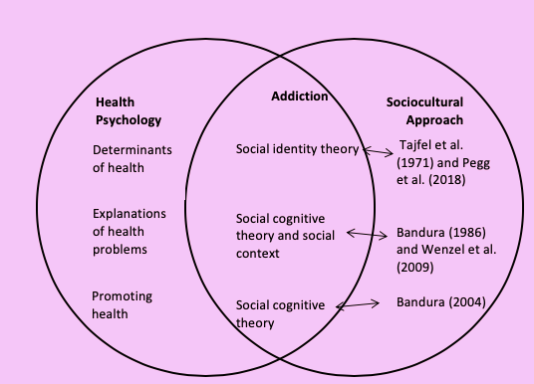
The Sociocultural Model Of Addiction 2022
In the early 1900s, a French doctor by the name of Jean-Martin Charcot hypothesized that there was something fundamentally different about people who became addicted to substances. He called it the “sociocultural model of addiction.” This model suggests that addiction is a product of social and cultural factors, not just biology or chemistry. Although this model has been largely discredited, it remains an interesting perspective on addiction. In this blog post, we will explore how the sociocultural model of addiction might apply to the 2022 opioid epidemic. We will also discuss some potential solutions and how you can help prevent this crisis from happening in the first place.
The Definition of Addiction
1. Addiction is a complex and chronic disease which affects the brain’s reward system.
2. There are many types of addiction, but all share some common features.
3. Addiction is a chronic disease that requires ongoing treatment.
4. Addiction is characterized by compulsive behaviors that are aimed at obtaining and using drugs or alcohol to achieve pleasure and relief from negative feelings.
5. People with addiction often experience difficulties in managing everyday life tasks due to their addiction, as well as problems in relationships and work/school productivity.
The Sociocultural Model of Addiction
The Sociocultural Model of Addiction is a model that was created to look at addiction from a different perspective. This model argues that addiction is not caused by a single factor, but is the result of a combination of factors. These factors include social and environmental factors, as well as individual characteristics.
The sociocultural model of addiction suggests that people are more likely to become addicted if they have certain social traits. For example, people who are relatively isolated or who don’t have many friends are more likely to develop an addiction because they’re not exposed to the kind of information and support that can help them overcome their addiction. Additionally, people who have difficulty regulating their emotions are also more likely to become addicted because they’re unable to cope with stress in healthy ways.
The sociocultural model also argues that people are more likely to develop an addiction if they have certain individual characteristics. For example, someone who is tendencies towards impulsivity or obsessive thinking might be more prone to developing an addiction if their environment supports those behaviors. Additionally, someone who has a history of emotional trauma or abuse may be more likely to become addicted if they don’t have enough coping mechanisms available for when things get tough.
The Three Components of the Sociocultural Model of Addiction
The sociocultural model of addiction posits that people with addictive behavior exhibit three components: (1) an individualized vulnerability to addiction, (2) a social environment that condones and reinforces addiction-related behaviors, and (3) physiological factors associated with drug use. These components work together to create an addictive process in which individuals become increasingly dependent on drugs or alcohol in order to cope with various life stressors.
Individualized Vulnerability to Addiction
According to the sociocultural model, each person is vulnerable to developing an addiction to drugs or alcohol based on individual characteristics and experiences. For example, some people may be more prone to develop addictions due to genetic factors or personal histories of trauma or abuse. Others may be more susceptible because they have difficulty regulating their emotions or are prone to developing mood swings after consuming drugs or alcohol. Regardless of the cause, anyone can become addicted if they fall victim to the social environment that supports addiction-related behaviors.
Social Environment That Condones and Reinforces Addiction-Related Behaviors
The sociocultural model suggests that people who engage in addictive behavior do so because they are socialized into a culture that accepts and promotes drug use. Rather than viewing drug abuse as a harmful habit that needs to be eliminated, many societies currently condone drug use as a way of escape from daily stressors. This acceptance has led many addicts to believe that using drugs is not only acceptable but also necessary for their overall happiness and well

